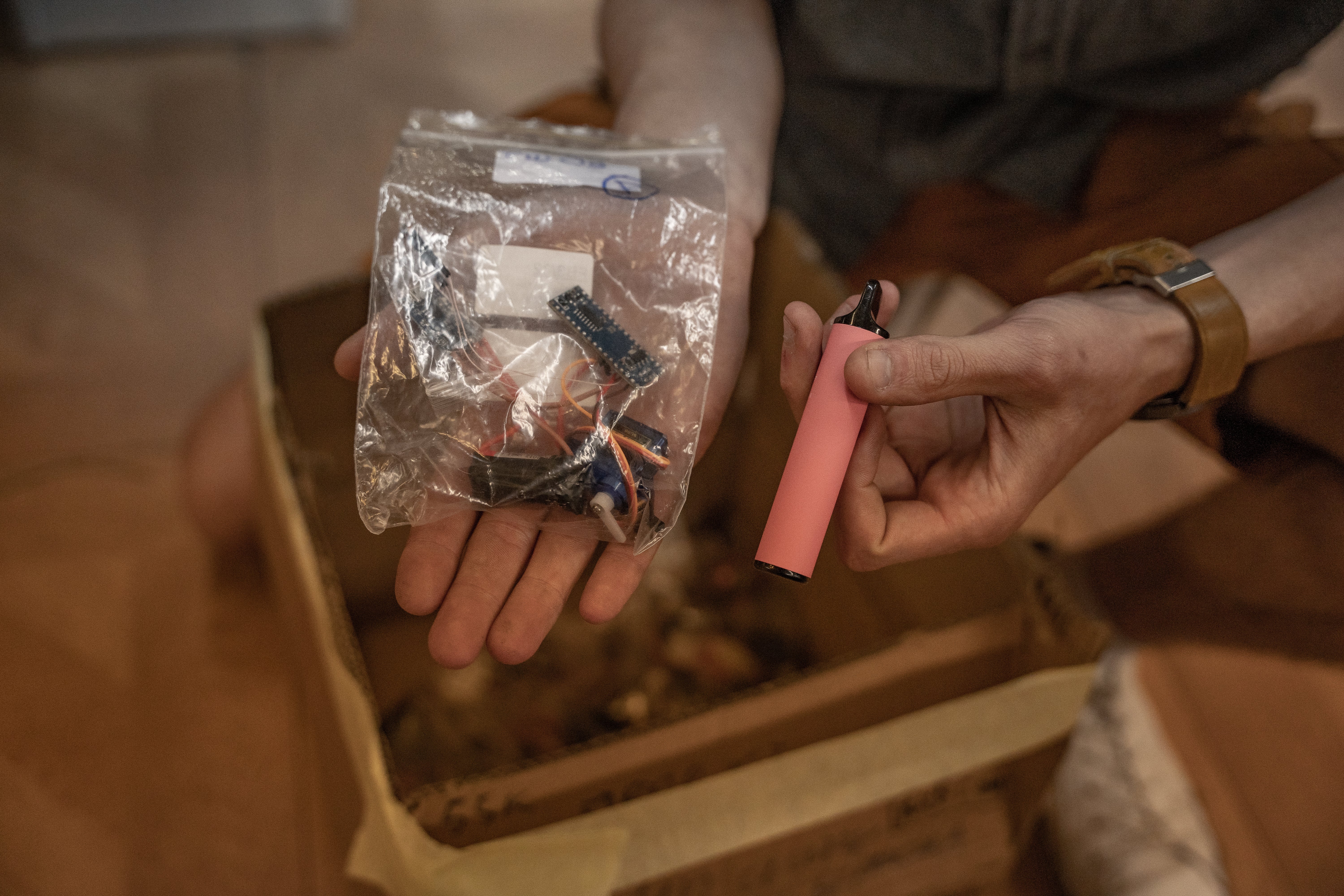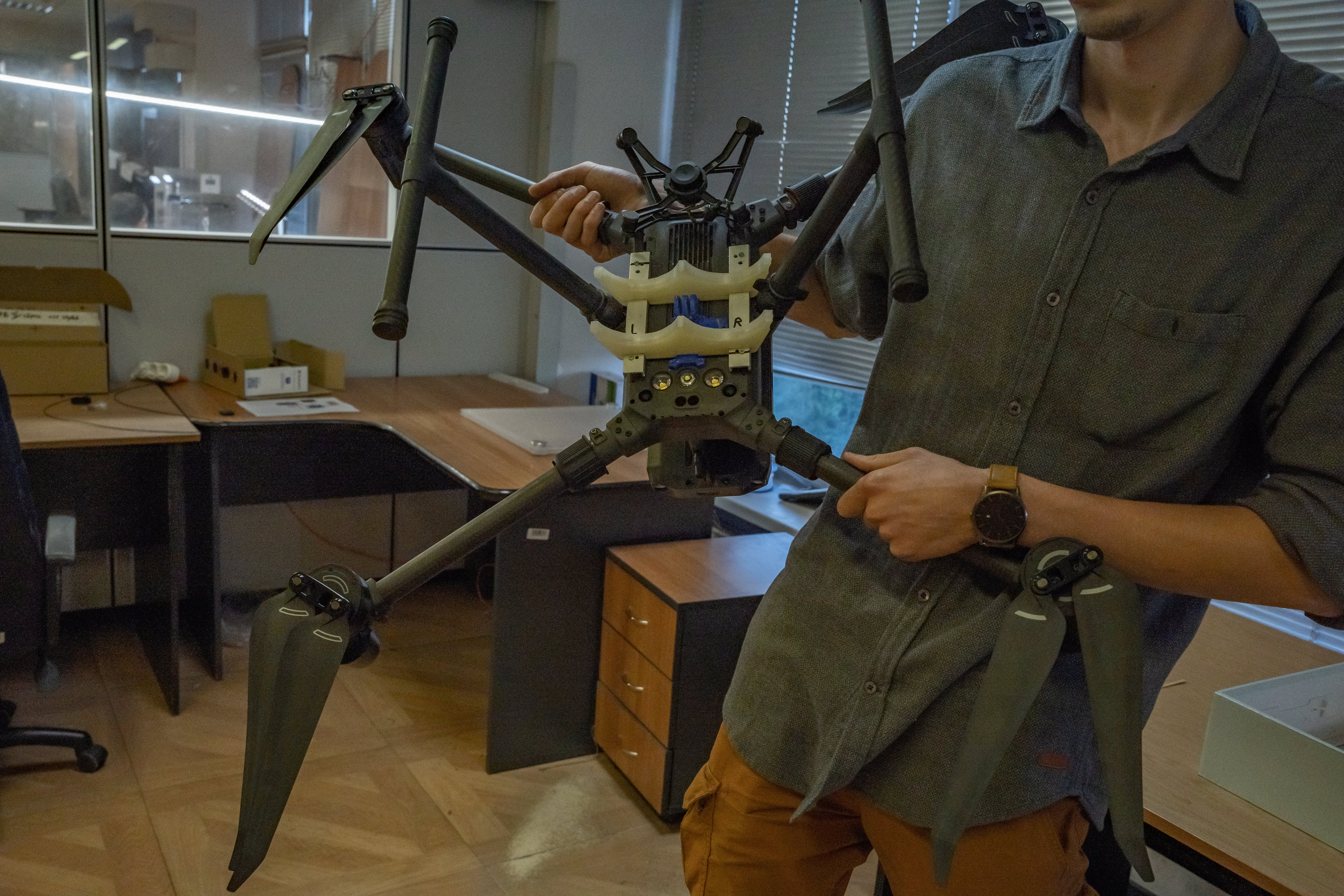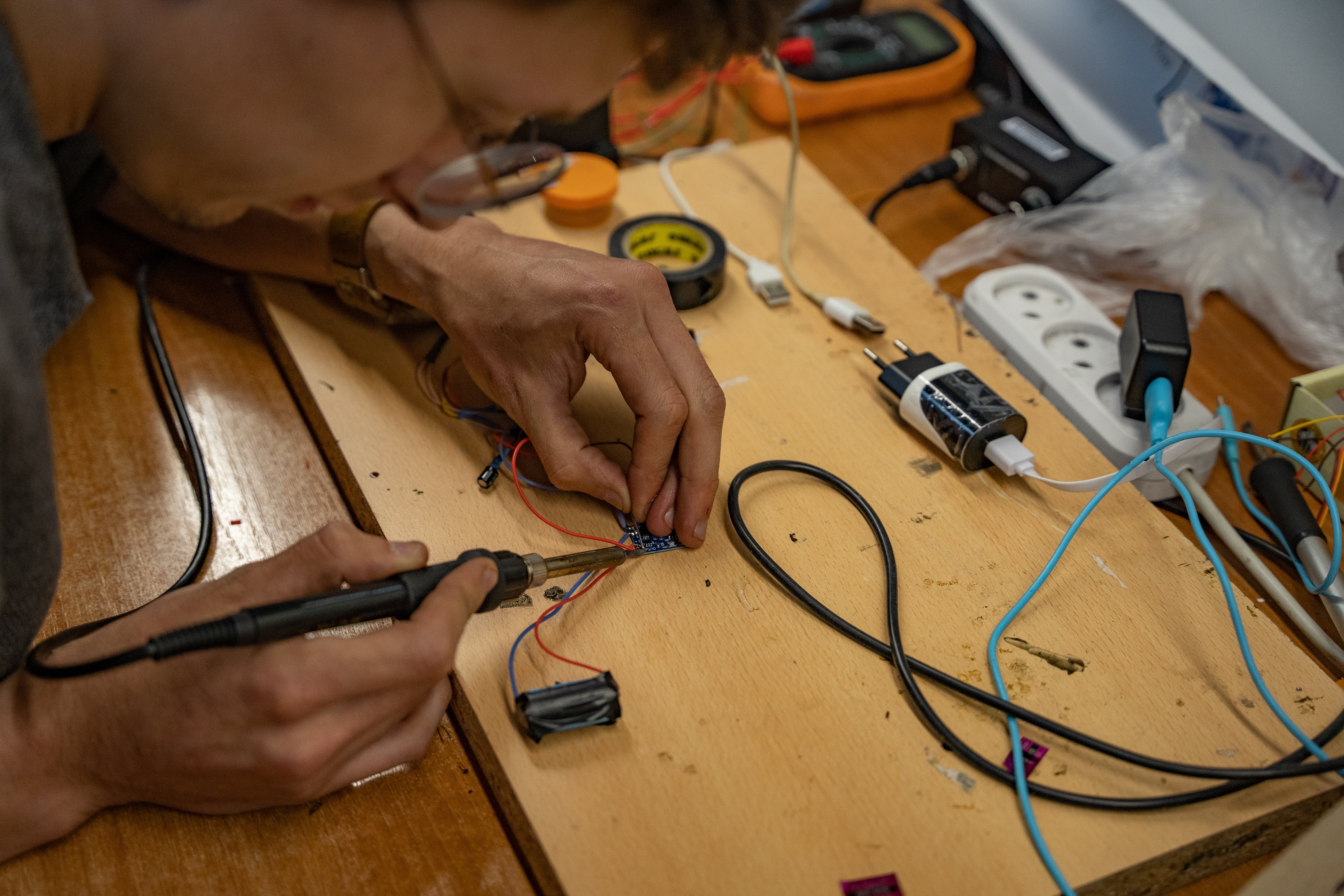Smoking out the enemy: How Ukraine is using e-cigarettes to fight a drone war against Russia
Resourceful Ukrainians are using batteries from discarded vape pens as a way to power drones on the front line. Bel Trew reports from a lab in Kyiv where production has begun


Few would connect vaping with armed drones. But in a busy workshop in Kyiv, disposable electronic cigarettes have become the newest weapon of war.
Across the country, Ukrainians have launched groundbreaking initiatives to support and even arm the Ukrainian military against Russia, after President Putin’s considerably larger army invaded in February.
A new and unusual one has just been launched by engineer and PhD student Maksym Sheremet and his organisation “Drone Lab”.
His team of volunteers have set up drop-off bins outside the campuses and dorm rooms of Kyiv Polytechnic Institute, where Sheremet studies and teaches, to collect disposable e-cigarettes and retrieve a valuable commodity inside them: lithium polymer batteries.

The batteries are being used to power release systems attached to drones so that they can carry and drop anything from medical supplies to grenades. The release systems are built using 3D printers.
“We started collecting e-cigarettes after the price of lithium batteries really rose a month ago,” the 26-year-old tells The Independent from his workshop which was littered with half-built drones and 3D printers in an undisclosed location in the capital.
Since the country had to close its airports at the start of the war, imported items have become increasingly difficult to get hold of and so expensive.
“Lithium batteries used to cost $1 each but went up five times in price adding significantly to our costs,” says Sheremet. “So we started powering dropping systems from the batteries in disposable e-cigarettes. It’s free, easy to repurpose and environmentally friendly because we are recycling.”
A team of around 60 volunteers are making the drone systems, with 30 working specifically on the e-cigarette plan.
In four months they have built 4,000 dropping systems – which cost under $30 – and are sent to the front. They are also building drones from scratch and repurposing existing commercial drones to go with their dropping systems. Three weeks ago they started working with e-cigarette batteries.
“In the last 20 days, we’ve made 100 drone dropping systems using e-cigarette batteries and have another 100 in progress,” the engineer continues, holding one drone they made which has a thermal camera on it.
“We have 2,000 orders in the pipeline.”
He says it was his way to contribute to the war effort.

“There are people who want to help and don’t know how to shoot a rifle. Our brain is our weapon,” the engineer continues.
“We have students, engineers, volunteer programmes... it’s very easy to solder this stuff, it is not a difficult job.”
The Ukrainian military has repeatedly pleaded with Western powers for arms as it has run low on ammunition and weaponry while Russia has pushed on with a ferocious offensive now focused on the east of the country.
In June, Ukrainian military intelligence officials claimed that Russia has up to 15 times more artillery than Ukraine does, meaning it is seriously outgunned.
Drones have therefore become crucial in the battle, allowing Ukrainian forces to spot artillery and so direct fire efficiently, saving ammunition. Some of the drones can also drop anything from anti-personnel grenades to small bombs or ferry medical supplies to soldiers in trouble.
There are people who want to help [the war effort] but don’t know how to shoot. Our brain is our weapon
At the start of the war, Ukraine’s defence ministry urged drone owners to turn in their machines to the military. On Friday Ukrainian media reported that the army had launched another drone drive: a fundraising project to source or crowdfund the purchase of 200 Scout drones.
“We work from donations and private investment so we don’t charge the military anything,” Sheremet continues.
“There isn’t a maximum weight to what the drones can hold – it’ll depend on the size of the drone and the release.”
The e-cigarette project has unexpected side benefits, he says as it helps with recycling and is safer than students just chucking their devices away.
E-cigarettes have powerful batteries which are designed to be recharged. The disposable devices have no USB charging points and so are discarded sometimes after a single use.

This, Sheremet says, is a colossal waste. It also poses a danger to waste and recycling workers: there are even calls in countries like the United States to create better legislation to manage the devices amid reports of e-cigarettes and their batteries catching fire and even exploding.
Sheremet and his team have set up collection points across the university. They recycle the plastic vape casing, repair and recharge the batteries, and place them in recharging cases so they can be used again and again. In the workshop he demonstrates how easy it is to extract the battery, solder the mechanism and attach it to a board.
“You cannot put electric cigarettes in the trash because of the lithium battery, it is a serious fire risk and terrible for the environment,” he concludes as his team are busy behind him.
“So our plan has benefits for the army, the environment and safety.”








Join our commenting forum
Join thought-provoking conversations, follow other Independent readers and see their replies
Comments